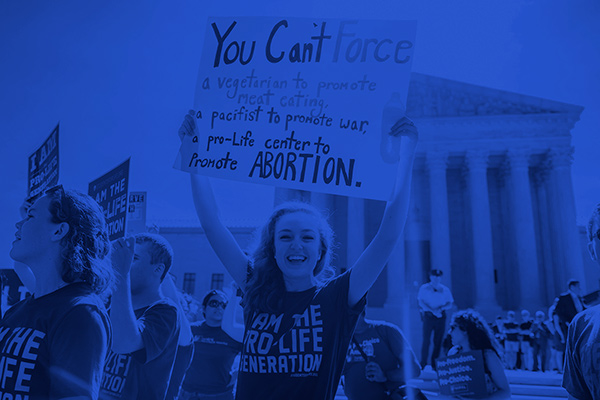Case Summary:
NIFLA v. Becerra (2018)
Compelled Speech

There is an on-going conflict between crisis pregnancy centers – organizations, often religiously-affiliated, which provide services to unexpectedly pregnant women who are unsure or unwilling to get an abortion – and pro-choice advocates – who argue that these centers falsely claim to offer a full range of pregnancy services and deceive women into thinking they are licensed medical providers. California attempted to regulate these centers with the 2015 California FACT Act, requiring them to post information about the services provided by the state (including abortion), along with a notice stating they are not medical providers.
The centers believed that this law would effectively be requiring them to advocate for abortion services, a violation of their First Amendment rights to freedom of speech and religious practice. The state argued that it had compelling interests in making sure patients knew they were receiving care from unlicensed providers and knew what low cost care they could receive from the state. The District and Appeals courts agreed with California, stating that the notices were “professional speech,” which is not subject to the same level of strict scrutiny as other forms of speech.
The Supreme Court disagreed in a 5-4 opinion authored by Justice Clarence Thomas. Thomas limited the relaxed scrutiny of “professional speech” to two categories – requiring disclosure of factual, noncontroversial information and regulating professional conduct that includes speech, such as obtaining informed consent. In all other instances, Thomas believed that “regulating the content of professionals’ speech ‘pose[s] the inherent risk that the Government seeks not to advance a legitimate regulatory goal, but to suppress unpopular ideas or information.” In this case, because the FACT Act only applied to these crisis pregnancy centers, it targeted “speakers, not speech,” and thus risked interfering with those speakers’ freedom of speech.
Additional Resources